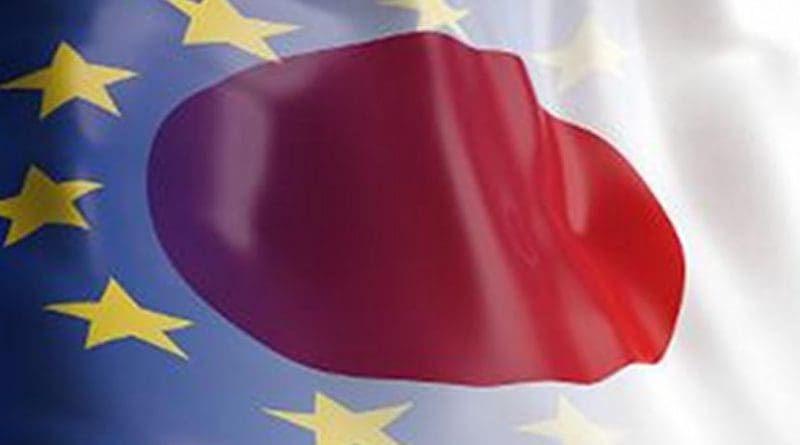EU-Japan Trade Agreement Enters Into Force
The Economic Partnership Agreement (EPA) between the EU and Japan enters into force on February 1, 2019, which proponents claim is the largest open trade zone in the world.
The Economic Partnership Agreement removes the vast majority of the €1 billion of duties paid annually by EU companies exporting to Japan. Once the agreement is fully implemented, Japan will have scrapped customs duties on 97% of goods imported from the EU. The agreement also removes a number of long-standing non-tariff barriers, for example by endorsing international standards on cars. It will also break down barriers for key EU food and drink exporters to 127 million Japanese consumers and will increase export opportunities in a range of other sectors. Annual trade between the EU and Japan could increase by nearly €36 billion once the agreement is implemented in full.
President of the European Commission Jean-Claude Juncker said, “Europe and Japan are sending a message to the world about the future of open and fair trade. We are opening a new marketplace home to 635 million people and almost a third of the world’s Gross Domestic Product, bringing the people of Europe and Japan closer together than ever before.”
According to Juncker, “The new agreement will give consumers greater choice and cheaper prices; it will protect great European products in Japan and vice-versa, such as the Austrian Tiroler Speck or Kobe Beef; it will give small businesses on both sides the chance to branch out to a completely new market; it will save European companies 1 billion euro in duties every year and turbo-boost the trade we already do together.”
Juncker added that more than anything the agreement shows that trade is about more than quotas and tariffs, or millions and billions.
“It is about values, principles and fairness,” he said
According to Cecilia Malmström, Commissioner for Trade, “This agreement has it all: it scraps tariffs and contributes to the global rulebook, whilst at the same time demonstrating to the world that we both remain convinced by the benefits of open trade.”
Malmström said that as of February 1, European companies will benefit from removed tariffs and simplified customs procedures.
“Our manufacturers, our service providers, our tech start-ups and our farmers all have something to celebrate,” Malmström said, adding, “I am also proud that we have locked in our Paris climate deal commitments into a trade agreement for the first time, as well as setting high standards for workers’ rights and consumer protection.”

